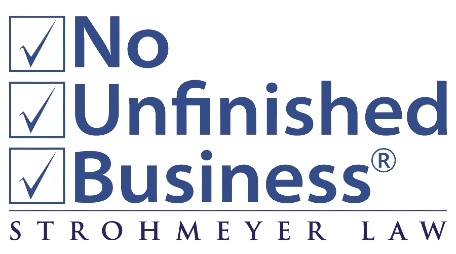What is the Estate Tax?
What is the Estate Tax?
John explains the Federal Estate Tax, how it is applied, and how to (at least roughly) calculate if and how much your estate may be taxed upon death.
What is the Estate Tax?
The Estate Tax is the tax the U.S. Government imposes on substantial wealth held at death. Wealth is exempt from this tax only up to a certain amount of money. The exemption amount in 2020 is $11.58 million (adjusted yearly for inflation). This exemption amount will increase every year until 2026. In 2026, the exemption amount will be cut down to approximately $5 million (adjusted yearly for inflation). This could change based on changes in the law.
So how does the Estate Tax work?
The tax operates separately from the Income Tax. The Estate Tax assesses the value of all of your assets on your death, and if you own assets valued more than a certain amount — $11.58 million in 2020 —you will pay roughly a 40% tax on the amount you own above the exemption amount.
How do we estimate the tax?
First, we total up everything you have the power to give away on your death. Next, we apply any deductions and then subtract the exemption amount to find your taxable estate. Next, we apply the tax credit. After all of these calculations, we can then determine how much is owed in Estate Taxes. This is a simplified explanation of the tax calculations. The $11.58 million exemption is not used directly in the calculation but is a useful way to determine if taxes will be owed and on what amount of your assets the tax will be imposed.
In summary
In sum, the U.S. Estate Tax is used to tax accumulated wealth in excess of a certain amount. This is a tax imposed on the assets, and, simply stated, we calculate your assets, subtract deductions, and then apply a credit amount to the taxable amount of your estate.
End-of-Year Strategies for Irrevocable Gifting Trusts
As the year draws to a close, there are some crucial actions to take with an irrevocable gifting trust.
What to Do If You Receive an IRS Letter
Receiving a letter from the IRS might send shivers down your spine. So what's your first step? Is it always a cause for alarm? Let's walk through what you should do.
Why You Need a Trademark
We'll explain the the four main areas of intellectual property for business owners, why trademarks are crucial, and how to get your marks registered.





